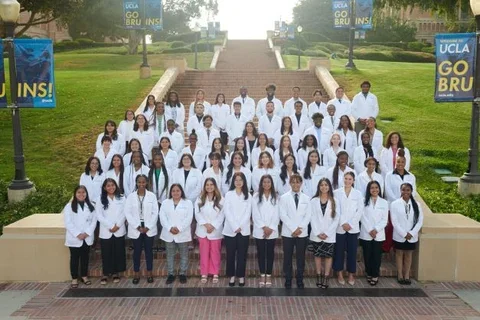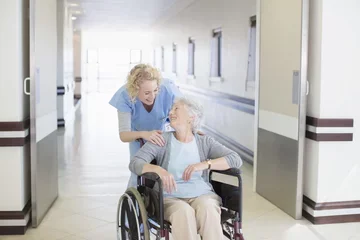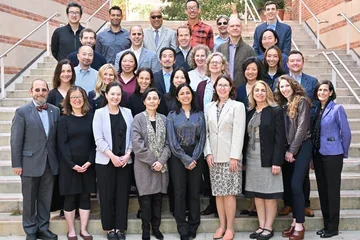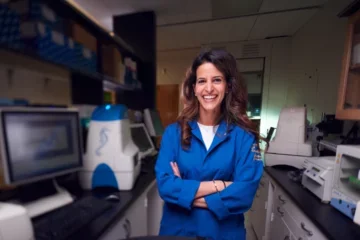UCLA Summer Programs - SHPEP
Preparing Disadvantaged Students for a Career in Healthcare

Each Summer, College Students Considering a Career in Healthcare Get Help and Guidance via Special Programs
Becoming a physician is challenging for anyone. It can be even more difficult for underrepresented minorities and disadvantaged students who lack the support and opportunities afforded to their peers.
SHPEP is one of the many UCLA summer programs helps to close that gap. Thanks to a generous grant from the Robert Wood Johnson Foundation, the David Geffen School of Medicine at UCLA hosts a six-week summer program for incoming college sophomores and juniors and community college students who are considering careers in healthcare.
UCLA is one of 13 sites for the annual Summer Health Professions Education Program (SHPEP), previously known as the Summer Medical Dental Education Program. Beginning in 2017, the program also includes nursing and other health professions.
Clarence Braddock, MD, vice dean of education for the medical school and principal investigator for SHPEP, says the UCLA summer programs target students "who come from disadvantaged backgrounds, who are the first to go to college, who don't have family role models or mentors, or who are otherwise academically disadvantaged."
How SHPEP Helps Students
SHPEP exposes students to problem-based learning cases, lectures, clinical experiences, small-group discussions and a research project. Dr. Braddock says benefits include:
- Academic enrichment: Participants learn study skills, note-taking techniques, reading for comprehension and other skills that are critical for academic success. "Students who are first in their families to go to college don't have a parent or sibling who can coach them on how to best study science and math," says Dr. Braddock.
- Science and math review: Participants learn or relearn some math and science, subjects that are foundational for medical school.
- Career coaching: Participants learn about the path to becoming health professionals. "Many of these students don't have anyone to coach them on how to conduct themselves in an interview or how to fill out applications," says Dr. Braddock. "We provide this nuts-and-bolts counseling about the health professions admissions process."
- Life skills: Participants learn about financial aid, personal finance, stress and time management, and other personal skills.
- Insights into medically underserved communities: UCLA's SHPEP focuses on health disparities, a topic that's important for any future physician, but which is often more accessible for disadvantaged students. "Many of the participants have seen family members struggle to get access to quality care, either because of cultural, socioeconomic or language barriers," Dr. Braddock explains. "Exploring these issues often makes them want to be part of the solution."
Participants also walk away feeling inspired. Even before Dr. Braddock took over SHPEP at UCLA, he was often invited to speak about his own professional journey. "Students told me how empowering it was to hear that I grew up in a community not too different from where they're growing up and went to a big public high school like they did, and that I struggled with my own self-doubt along the way," Dr. Braddock says. "And yet I've become a physician and vice dean at a top medical school, so maybe they can too."
How SHPEP Helps the Medical Profession
Participants aren't the only ones who gain something from SHPEP. So do UCLA and the medical community at large.
"At the David Geffen School of Medicine at UCLA, we aspire to create world leaders in health," says Dr. Braddock. "We seek to bring in the brightest students, and to be a positive force for improving diversity in our profession. If we don't cultivate the pool of applicants to medical schools to be more representative of minorities and people from disadvantaged backgrounds, we'll never get there. This is one of the many ways we try to produce a more diverse physician workforce that meets the needs of our communities."



